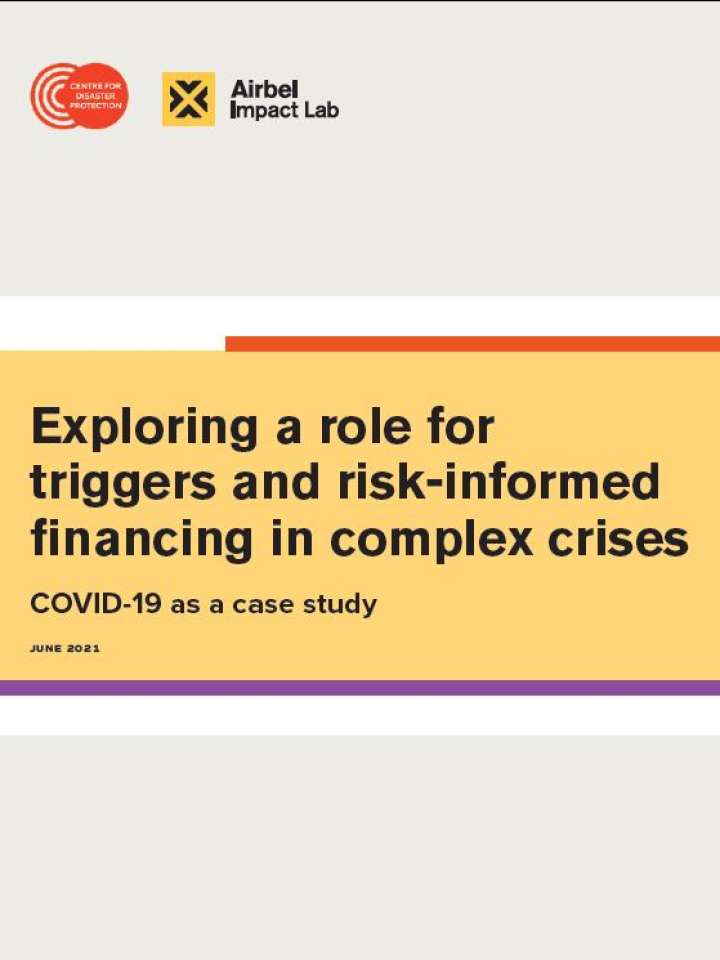Exploring a role for triggers and risk-informed financing in complex crises
This report presents a retrospective analysis of the International Rescue Committee's (IRC) approach to financing the first nine months of the COVID-19 outbreak; and an analysis to identify, develop and appraise possible trigger mechanisms to support decision-makers and lay the foundation for further risk-informed financing. COVID-19 has sparked a complex, multifaceted, and likely protracted global humanitarian crisis. In the most fragile contexts this could mean years of spikes in health, economic, and other risks related to the virus and associated containment measures. The complex, dynamic, and protracted nature of this crisis calls for an adequately comprehensive, dynamic, and long-term approach to humanitarian strategy, operations, and finance.
The report captured three lessons:
- Crisis risk management and crisis risk financing can enhance timeliness and effectiveness for even the most complex risks
- Design to solve real-world problems - ‘form should follow function’
- Design with humility and learn by doing
Explore further

